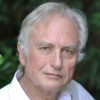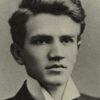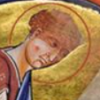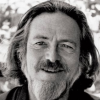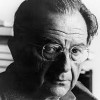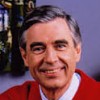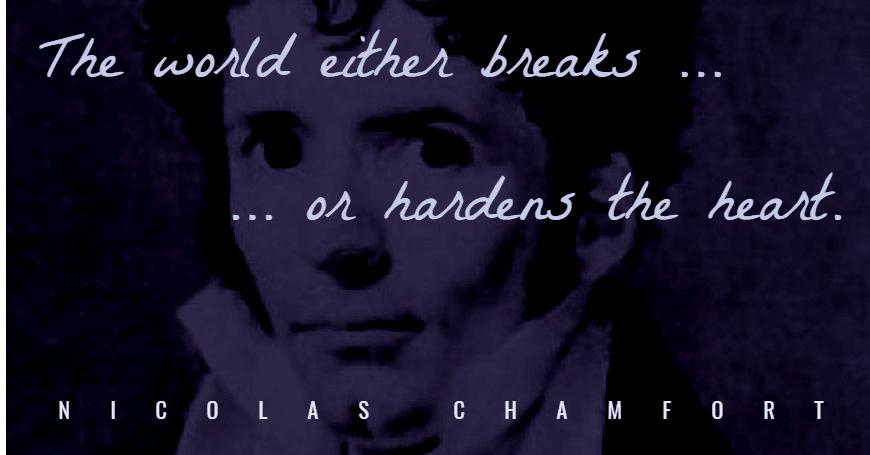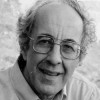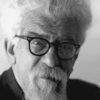Listen, are you breathing just a little and calling it a life?
Mary Oliver (1935-2019) American poet
“Have You Ever Tried to Enter the Long Black Branches?” West Wind (1997)
(Source)
Quotations about:
existence
Note not all quotations have been tagged, so Search may find additional quotes on this topic.
We are going to die, and that makes us the lucky ones. Most people are never going to die because they are never going to be born. The potential people who could have been here in my place but who will in fact never see the light of day outnumber the sand grains of Sahara. Certainly those unborn ghosts include greater poets than Keats, scientists greater than Newton. We know this because the set of possible people allowed by our DNA so massively outnumbers the set of actual people. In the teeth of these stupefying odds it is you and I, in our ordinariness, that are here.
Richard Dawkins (b. 1941) English ethologist, evolutionary biologist, author
Unweaving The Rainbow, ch. 1 “The Anaesthetic of Familiarity” (1998)
(Source)
Dawkins has said this passage will be read at his funeral.
The philosopher Didactylos has summed up an alternative hypothesis as “Things just happen. What the hell.”
To me the honour is sufficient of belonging to the universe — such a great universe, and so grand a scheme of things. Not even Death can rob me of that honour. For nothing can alter the fact that I have lived; I have been I, if for ever so short a time. And when I am dead, the matter which composes my body is indestructible — and eternal, so that come what may to my “Soul,” my dust will always be going on, each separate atom of me playing its separate part — I shall still have some sort of a finger in the pie. When I am dead, you can boil me, burn me, drown me, scatter me — but you cannot destroy me: my little atoms would merely deride such heavy vengeance. Death can do no more than kill you.
W. N. P. Barbellion (1889-1919) English diarist [William Nero Pilate Barbellion, pen name of Bruce Frederick Cummings]
The Journal of a Disappointed Man, 1912-12-22 (1919)
(Source)
I live,
But live to die: and, living, see no thing
To make death hateful, save an innate clinging,
A loathsome and yet all invincible
Instinct of life, which I abhor, as I
Despise myself, yet cannot overcome —
And so I live. Would I had never lived!
Without music there can be no perfect knowledge, for there is nothing without it. For even the universe itself is said to have been put together with a certain harmony of sounds, and the very heavens revolve under the guidance of harmony.
[Itaque sine Musica nulla disciplina potest esse perfecta, nihil enim sine illa. Nam et ipse mundus quadam harmonia sonorum fertur esse conpositus, et coelum ipsud sub harmoniae modulatione revolvi.]
Isidore of Seville (c. 560 - 636) Spanish scholar and cleric [Isidore the Younger, Isidorus Hispalensis]
Etymologiae, Book 3, ch. 17 “On the Power of Music,” § 1 [tr. Brehaut (1912)]
(Source)
A stone lies in a river; a piece of wood is jammed against it; dead leaves, drifting logs, and branches caked with mud collect; weeds settle there, and soon birds have made a nest and are feeding their young among the blossoming water plants. Then the river rises and the earth is washed away. The birds depart, the flowers wither, the branches are dislodged and drift downward; no trace is left of the floating island but a stone submerged by the water; — such is our personality.
Cyril Connolly (1903-1974) English intellectual, literary critic and writer.
The Unquiet Grave, Part 1 “Ecce Gubernator” (1944)
(Source)
But immediately upon this I observed that, whilst I thus wished to think that all was false, it was absolutely necessary that I, who thus thought, should be somewhat; and as I observed that this truth, I think, therefore I am (COGITO ERGO SUM), was so certain and of such evidence that no ground of doubt, however extravagant, could be alleged by the sceptics capable of shaking it, I concluded that I might, without scruple, accept it as the first principle of the philosophy of which I was in search.
[Mais aussitôt après je pris garde que, pendant que je voulois ainsi penser que tout étoit faux, il falloit nécessairement que moi qui le pensois fusse quelque chose; et remarquant que cette vérité, je pense, donc je suis, étoit si ferme et si assurée, que toutes les plus extravagantes suppositions des sceptiques n’étoient pas capables de l’ébranler, je jugeai que je pouvois la recevoir sans scrupule pour le premier principe de la philosophie que je cherchois.]
René Descartes (1596-1650) French philosopher, mathematician
Discourse on Method [Discours de la méthode], Part 4 (1637) [tr. Veitch (1850)]
(Source)
(Source (French)). Alternate translations:
But presently after I observ’d, that whilst I would think that all was false, it must necessarily follow, that I who thought it, must be something. And perceiving that this Truth, I think, therefore, I am, was so firm and certain, that all the most extravagant suppositions of the Scepticks was not able to shake it, I judg’d that I might receive it without scruple for the first principle of the Philosophy I sought.
[Newcombe ed. (1649)]
But immediately afterwards I noticed that whilst I thus wished to think all things false, it was absolutely essential that the "I" who thought this should be somewhat, and remarking that this truth "I think, therefore I am" was so certain and so assured that all the most extravagant suppositions brought forward by the sceptics were incapable of shaking it, I came to the conclusion that could receive it without scruple as the first principle of the Philosophy for which I was seeking.
[tr. Haldane & Ross (1911)]
But immediately upon this I noticed that while I was trying to think everything false, it must needs be that I, who was thinking this, was something. And observing that this truty "I am thinking, therefore I exist" was so solid sceptics could not overthrow it, I judged that I need not scriple to accept it as the first principle of philosophy that I was seeking.
[tr. Ascombe & Geach (1971)]
But immediately I noticed that while I was endeavoring in this way to think that everything was false, it was necessary that I, who was thinking this, was something. And observing that this truth, "I am thinking, therefore I exist" was so firm and sure that all the most extravagant suppositions of the sceptics were incapable of shaking it, I decided that I could accept it without scruple as the first principle of the philosophy I was seeking.
[tr. Cottingham, Stoothoff (1985)]
The world is not what anyone wished for, but it’s what everyone wished for.
James Richardson (b. 1950) American poet
“Vectors: 56 Aphorisms and Ten-second Essays,” Michigan Quarterly Review, #11 (Spring 1999)
(Source)
You see, a philosopher is a sort of intellectual yokel who gawks at things that sensible people take for granted.
Alan Watts (1915-1973) Anglo-American philosopher, writer
“The Relevance of Oriental Philosophy” (c. 1964)
(Source)
Collected in Eastern Wisdom, Modern Life, ch. 6 (2006). Variant: "A philosopher is a sort of intellectual yokel who gawks at things, like existence, that ordinary people take for granted."
I trouble not myself about the manner of future existence. I content myself with believing, even to positive conviction, that the power that gave me existence is able to continue it, in any form and manner he pleases, either with or without this body; and it appears more probable to me that I shall continue to exist hereafter than that I should have had existence, as I now have, before that existence began.
Thomas Paine (1737-1809) American political philosopher and writer
The Age of Reason, Part 1, Recapitulation (1794)
(Source)
Newton and Descartes started to try and prove that God existed in the same way as they would try and prove something in the laboratory or with their mathematics … And when you try and mix science and religion you get bad science and bad religion. The two are doing two different things. … Science can give you a diagnosis of cancer. It can even cure your disease, but it cannot touch your grief and disappointment, nor can it help you to die well.
Karen Armstrong (b. 1944) British author, comparative religion scholar
“The Reason of Faith,” Interview with Michael Brunton, Ode (Sep-Oct 2009)
(Source)
Men may be divided almost any way we please, but I have found the most useful distinction to be made between those who devote their lives to conjugating the verb “to be” and those who spend their lives conjugating the verb “to have.”
Sydney J. Harris (1917-1986) Anglo-American columnist, journalist, author
For the Time Being, ch. 6, epigram (1972)
(Source)
The concentration camps, by making death itself anonymous (making it impossible to find out whether a prisoner is dead or alive), robbed death of its meaning as the end of a fulfilled life. In a sense they took away the individual’s own death, proving that henceforth nothing belonged to him and he belonged to no one. His death merely set a seal on the fact that he had never existed.
Hannah Arendt (1906-1975) German-American philosopher, political theorist
The Origins of Totalitarianism, Part 3, ch. 12 “Totalitarianism in Power,” sec. 3 (1951)
(Source)
The world is not respectable; it is mortal, tormented, confused, deluded forever; but it is shot through with beauty, with love, with glints of courage and laughter; and in these, the spirit blooms timidly, and struggles to be a light amid the thorns.
George Santayana (1863-1952) Spanish-American poet and philosopher [Jorge Agustín Nicolás Ruíz de Santayana y Borrás]
Platonism and the Spiritual Life (1927)
(Source)
Man is the only animal who does not feel at home in nature, who can feel evicted from paradise, the only animal for whom his own existence is a problem that he has to solve and from which he cannot escape.
Erich Fromm (1900-1980) American psychoanalyst and social philosopher
The Anatomy of Human Destructiveness, ch. 10 (1973)
(Source)
Sometimes elided, "Man is the only animal for whom his own existence is a problem he has to solve."
The world is not always a kind place. That’s something all children learn for themselves, whether we want them to or not, but it’s something they really need our help to understand.
The world either breaks or hardens the heart.
[En vivant et en voyant les hommes, il faut que le cœur se briese ou se bronze.]
Nicolas Chamfort (1741-1794) French writer, epigrammist (b. Nicolas-Sébastien Roch)
Products of Perfected Civilization [Produits de la Civilisation Perfectionnée], Part 2 “Characters and Anecdotes [Caractères et Anecdotes],” ch. 3 (frag. 771) (1795) [tr. Finod (1880)]
(Source)
(Source (French))
Attributed by Chamfort as a statement in a philosophical debate, made by M. D---. Finod's translation is very much a paraphrase, as is:
Contact with the world either breaks or hardens the heart.
[ed. Ballou (1882)]
More literal translations:
Living among men and observing them, the heart must either break or turn to bronze.
[tr. Merwin (1969)]
In living and in seeing men, the heart must break or be bronzed.
[Source]
Though attributed by Chamfort to "M. D----," he also used the phrase himself, and it is usually attributed to him. Toward the end of his life, he wrote:
Je m'en vais enfin, de ce monde où il faut que le cœur se briese ou se bronze.
[I am leaving at last from this world where the heart must break or become bronze.]
It is known that there are an infinite number of worlds, simply because there is an infinite amount of space for them to be in. However, not every one of them is inhabited. Therefore, there must be a finite number of inhabited worlds. Any finite number divided by infinity is as near to nothing as makes no odds, so the average population of all the planets in the Universe can be said to be zero. From this it follows that the population of the whole Universe is also zero, and that any people you may meet from time to time are merely the products of a deranged imagination.
Human life must be some kind of mistake. The truth of this will be sufficiently obvious if we only remember that man is a compound of needs and necessities hard to satisfy; and that even when they are satisfied, all he obtains is a state of painlessness, where nothing remains to him but abandonment to boredom. This is direct proof that existence has no real value in itself; for what is boredom but the feeling of the emptiness of life? If life — the craving for which is the very essence of our being — were possessed of any positive intrinsic value, there would be no such thing as boredom at all: mere existence would satisfy us in itself, and we should want for nothing. But as it is, we take no delight in existence except when we are struggling for something; and then distance and difficulties to be overcome make our goal look as though it would satisfy us — an illusion which vanishes when we reach it; or else when we are occupied with some purely intellectual interest — when in reality we have stepped forth from life to look upon it from the outside, much after the manner of spectators at a play. And even sensual pleasure itself means nothing but a struggle and aspiration, ceasing the moment its aim is attained. Whenever we are not occupied in one of these ways, but cast upon existence itself, its vain and worthless nature is brought home to us; and this is what we mean by boredom. The hankering after what is strange and uncommon — an innate and ineradicable tendency of human nature — shows how glad we are at any interruption of that natural course of affairs which is so very tedious.
[Daß das menschliche Daseyn eine Art Verirrung seyn müsse, geht zur Genüge aus der einfachen Bemerkung hervor, daß der Mensch ein Konkrement von Bedürfnissen ist, deren schwer zu erlangende Befriedigung ihm doch nichts gewährt, als einen schmerzlosen Zustand, in welchem er nur noch der Langenweile Preis gegeben ist, welche dann geradezu beweist, daß das Daseyn an sich selbst keinen Werth hat: denn sie ist eben nur die Empfindung der Leerheit desselben. Wenn nämlich das Leben, in dem Verlangen nach welchem unser Wesen und Daseyn besteht, einen positiven Werth und realen Gehalt in sich selbst hätte; so könnte es gar keine Langeweile geben: sondern das bloße Daseyn, an sich selbst, müßte uns erfüllen und befriedigen. Nun aber werden wir unsers Daseyns nicht anders froh, als entweder im Streben, wo die Ferne und die Hindernisse das Ziel als befriedigend uns vorspiegeln, welche Illusion nach der Erreichung verschwindet; oder aber in einer rein intellektuellen Beschäftigung, in welcher wir jedoch eigentlich aus dem Leben heraustreten, um es von außen zu betrachten, gleich Zuschauern in den Logen. Sogar der Sinnengenuß selbst besteht in einem fortwährenden Streben und hört auf, sobald sein Ziel erreicht ist. So oft wir nun nicht in einem jener beiden Fälle begriffen, sondern auf das Daseyn selbst zurückgewiesen sind, werden wir von der Gehaltlosigkeit und Nichtigkeit desselben überführt, und Das ist die Langeweile. Sogar das uns inwohnende und unvertilgbare, begierige Haschen nach dem Wunderbaren zeigt an, wie gern wir die so langweilige, natürliche Ordnung des Verlaufs der Dinge unterbrochen sähen.]
Arthur Schopenhauer (1788-1860) German philosopher
Parerga and Paralipomena, Vol. 2, ch. 11 “The Vanity of Existence [Der Nichtigkeit des Daseins],” § 146 (1851)
(Source)
(Source (German)). Alternate translation:
That human life must be a kind of mistake is sufficiently clear from the fact that man is a compound of needs, which are difficult to satisfy; moreover, if they are satisfied, all he is granted is a state of painlessness, in which he can only give himself up to boredom. This is a precise proof that existence in itself has no value, since boredom is merely the feeling of the emptiness of life. If, for instance, life, the longing for which constitutes our very being, had in itself any positive and real value, boredom could not exist; mere existence in itself would supply us with everything, and therefore satisfy us. But our existence would not be a joyous thing unless we were striving after something; distance and obstacles to be overcome then represent our aim as something that would satisfy us -- an illusion which vanishes when our aim has been attained; or when we are engaged in something that is of a purely intellectual nature, when, in reality, we have retired from the world, so that we may observe it from the outside, like spectators at a theatre. Even sensual pleasure itself is nothing but a continual striving, which ceases directly its aim is attained. As soon as we are not engaged in one of these two ways, but thrown back on existence itself, we are convinced of the emptiness and worthlessness of it; and this it is we call boredom. That innate and ineradicable craving for what is out of the common proves how glad we are to have the natural and tedious course of things interrupted.
[tr. Dircks]
That human existence must be some kind of error, is sufficiently clear from the simple observation that man is a concretion of needs and wants. Their satisfaction is hard to attain and yet affords him nothing but a painless state in which he is still abandoned to boredom. This, then, is a positive proof that, in itself, existence has no value; for boredom is just that feeling of its emptiness. Thus if life, in the craving for which our very essence and existence consist, had a positive value and in itself a real intrinsic worth, there could not possibly be any boredom. On the contrary, mere existence in itself would necessarily fill our hearts and satisfy us. Now we take no delight in our existence except in striving for something when the distance and obstacles make us think that the goal will be satisfactory, an illusion that vanishes when it is reached; or else in a purely intellectual occupation where we really step out of life in order to contemplate it from without, like spectators in the boxes. Even sensual pleasure itself consists in a constant striving and ceases as soon as its goal is attained. Now whenever we are not striving for something or are not intellectually occupied, but are thrown back on existence itself, its worthlessness and vanity are brought home to us; and this is what is meant by boredom. Even our inherent and ineradicable tendency to run after what is strange and extraordinary shows how glad we are to see an interruption in the natural course of things which is so tedious.
[tr. Payne (1974)]
PROSPERO: We are such stuff
As dreams are made on, and our little life
Is rounded with a sleep.William Shakespeare (1564-1616) English dramatist and poet
Tempest, Act 4, sc. 1, l. 173ff (4.1.173-175) (1611)
(Source)
The Christian determination to find the world ugly and bad has made the world ugly and bad.
[Der christliche Entschluss, die Welt hässlich und schlecht zu finden, hat die Welt hässlich und schlecht gemacht.]
Friedrich Nietzsche (1844-1900) German philosopher and poet
The Gay Science [Die fröhliche Wissenschaft], Book 3, § 130 (1882) [tr. Hill (2018)]
(Source)
Also known as La Gaya Scienza, The Joyful Wisdom, or The Joyous Science.
(Source (German)). Alternate translations:
The Christian resolution to find the world ugly and bad, has made the world ugly and bad.
[tr. Common (1911)]
The Christian resolve to find the world ugly and bad, has made the world ugly and bad.
[tr. Kaufmann (1974)]
The Christian decision to find the world ugly and bad has made the world ugly and bad.
[tr. Nauckhoff (2001)]
NARRATOR: There is a theory which states that if ever anyone discovers exactly what the Universe is for and why it is here, it will instantly disappear and be replaced by something even more bizarrely inexplicable. There is another theory which states that this has already happened.
Douglas Adams (1952-2001) English writer
Hitchhiker’s Guide to the Galaxy, Phase 2, “Fit the 7th” (BBC radio) (1978-12-24)
(Source)
The Narrator then adds:
There is yet a third theory which suggests that both of the first two theories were concocted by a wily editor of The Hitchhiker’s Guide to the Galaxy in order to increase the level of universal uncertainty and paranoia and so boost the sales of the Guide. This last theory is of course the most convincing, because The Hitchhiker’s Guide to the Galaxy is the only book in the whole of the known Universe to have the words DON’T PANIC inscribed in large friendly letters on the cover.
This quotation was brought back to be the epigraph for the second Hitchhiker book, The Restaurant at the End of the Universe (1980), each paragraph on a different page:
There is a theory which states that if ever anyone discovers exactly what the Universe is for and why it is here, it will instantly disappear and be replaced by something even more bizarre and inexplicable.
There is another theory which states that this has already happened.
It doesn’t seem to me that this fantastically marvelous universe, this tremendous range of time and space and different kinds of animals, and all the different planets, and all these atoms with all their motions, and so on, all this complicated thing can merely be a stage so that God can watch human beings struggle for good and evil — which is the view that religion has. The stage is too big for the drama.
Richard Feynman (1918-1988) American physicist
Viewpoint interview by Bill Stout, KNXT (1 May 1959)
Reprinted in Perfectly Reasonable Deviations from the Beaten Track, ed. by Michelle Feynman, Appendix I (2006).
The greatest trick the devil ever pulled was convincing the world he didn’t exist.
Christopher McQuarrie (b. 1968) American screenwriter, director
The Usual Suspects [Kint] (1995)
Kint gives this line twice: first about an hour into the movie, and second as one of its final lines.
See Baudelaire.
Let everyone, then, do something, according to the measure of his capacities. To have no regular work, no set sphere of activity — what a miserable thing it is! How often long travels undertaken for pleasure make a man downright unhappy; because the absence of anything that can be called occupation forces him, as it were, out of his right element. Effort, struggles with difficulties! that is as natural to a man as grubbing in the ground is to a mole. To have all his wants satisfied is something intolerable — the feeling of stagnation which comes from pleasures that last too long. To overcome difficulties is to experience the full delight of existence.
[Inzwischen treibe jeder etwas, nach Maßgabe seiner Fähigkeiten. Denn wie nachteilig der Mangel an planmäßiger Tätigkeit, an irgend einer Arbeit, auf uns wirke, merkt man auf langen Vergnügungsreisen, als wo man, dann und wann, sich recht unglücklich fühlt; weil man, ohne eigentliche Beschäftigung, gleichsam aus seinem natürlichen Elemente gerissen ist. Sich zu mühen und mit dem Widerstande zu kämpfen ist dem Menschen Bedürfnis, wie dem Maulwurf das Graben. Der Stillstand, den die Allgenugsamkeit eines bleibenden Genusses herbeiführte, wäre ihm unerträglich. Hindernisse überwinden ist der Vollgenuß seines Daseins.]
Arthur Schopenhauer (1788-1860) German philosopher
Parerga and Paralipomena, Vol. 1, “Aphorisms on the Wisdom of Life [Aphorismen zur Lebensweisheit],” ch. 5 “Counsels and Maxims [Paränesen und Maximen],” § 2.17 (1851) [tr. Saunders (1890)]
(Source)
(Source (German)). Alternate translation:
Nevertheless, everyone should do something according to the measure of his abilities. For on long pleasure-trips we see how pernicious is the effect on us of not having any systematic activity or work. On such trips we feel positively unhappy because we are without any proper occupation and are, so to speak, torn from our natural element. Effort, trouble, and struggle with opposition are as necessary to man as grubbing in the ground is to a mole. The stagnation that results from being wholly contented with a lasting pleasure would be for him intolerable. The full pleasure of his existence is in overcoming obstacles.
[tr. Payne (1974)]
That life is worth living is the most necessary of assumptions, and were it not assumed, the most impossible of conclusions.
George Santayana (1863-1952) Spanish-American poet and philosopher [Jorge Agustín Nicolás Ruíz de Santayana y Borrás]
The Life of Reason or The Phases of Human Progress, Vol. 1 “Reason in Common Sense,” ch. 10 (1905-06)
(Source)


